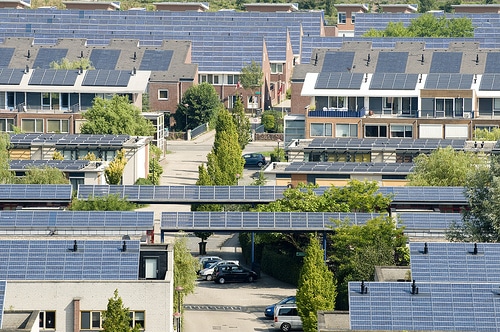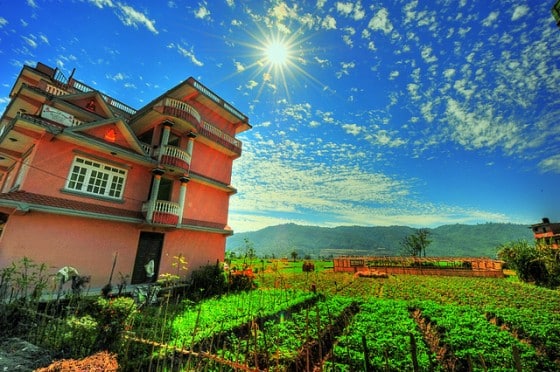
Solar: May All Your Months Be November

“May all your months be November.” So goes the ancient Chinese curse. Well, actually, the curse really goes: “May you live in interesting times.” You see, “interesting” times – those that you read about in the history books – are times of war and famine and terror.

This is one of the things that many people don’t think about when they sign up for the solar panels. In our case, the system was hooked up in November, so we have several months to go before we start to benefit truly from the Sun’s good graces.
What else do some people overlook when setting up their solar power?
Individual panel monitoring: Sure, you can monitor the total power generated, and through the inverter you most likely can monitor a whole bunch of things. On my Aurora Inverter, I like to watch the fluctuations in watts/hour – I will figure out how to interpret the rest of the readings later. But what if you notice that the system is underperforming? We have 24 panels on each of our two posts. How do you know which panels are the laggards? We have a Tigo Maximizer installed, so that we can monitor each one’s performance and also to make sure that one underperforming panel does not drag the others down with it.

Paperwork: If you are allergic to paperwork, solar power is not for you. The forms, the waiting, the fixing incorrectly filled forms…it is a lot.
Financing: Yes, it does cost a few dollars to build a solar generating system. Ours cost close to $100,000 for a two-post, track-the-sun, 10 kw system. We did not sign any contracts until we had word from the bank that every penny we would need was available.
Bridge financing: Ah…so you start to generate power and earn money. But it takes 2 to 3 months to see your first check. At least, that’s what we were told; we will have to wait and see. Meanwhile, you are paying interest on a very big loan. Allow me to rephrase that last sentence in the previous paragraph: We did not sign any contracts until we had word from the bank that every penny we would need – and a while pile more – was available.
Maintenance: This consists primarily of lubrication (only with very specific lubricants) and tightening bolts. A rooftop system probably needs almost no maintenance, but ours does. Looks like I will need to buy the lubricant, and appropriate ladder and a torque wrench of some sort. Or a $500/year maintenance plan – but my preference is to do it myself. A solar system is a much bigger investment than a car, so you really do not want to let it go to seed.
Insurance: Yes, this might seem obvious, but I understand that a lot of people do overlook it.
By-laws: Do you need a building permit? Do you need to know about municipal easements? Is there a by-law preventing “eyesores” – you might not think a solar generating system is an eyesore, but have you ever noticed how your neighbour has funny taste? Exactly. Before you spend that kind of money, make sure.
Maybe there is something I have overlooked here, either because I missed something when setting up my own system, because I overlooked it when writing this article, or because it is not applicable in my jurisdiction. Please feel free to add anything I might not have mentioned in the comments below.
In some of his social media profiles, David says, “I love nature, but I live on the Internet. Go figure.” Blogging about Solar Power gives him a way to love nature on the Internet. You can visit his Solar Ontario blog to learn more about his real-life experience setting up solar power generation. And if you happen to be a fellow Canadian, he invites you to participate in his Canadian social bookmarking community at Zoomit.ca.
Many thanks to David for his interesting and insightful guest blog post covering some of the key things people overlook when setting up their solar power.




Post a comment